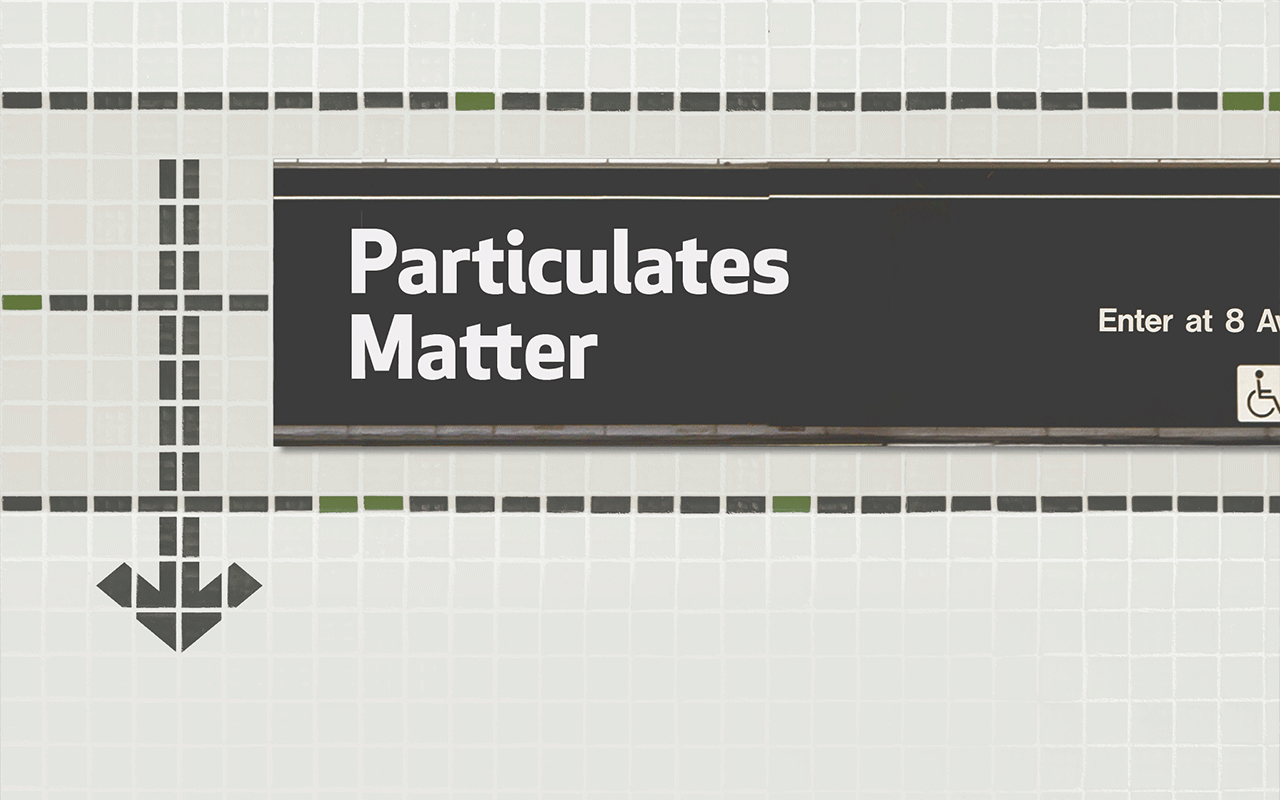Particulates Matter
Villanova researchers look at the health effects of air quality in underground subway stations
By Sarah Sexton

A team of Villanova students are key contributors to a study measuring air quality in underground subway stations and examining its effect on human lung cells. This research will have implications and useful insights for public transportation systems and transit managers on a regional, national and global scale.
“There’s a lot of work that has been done in this area in Asia and Europe, but not very much in US cities,” says Kabindra Shakya, PhD, associate professor of Geography and the Environment. “This is one of the very few studies that’s being done to assess the health effects of the particulate matter in subway stations and compare it across not just the underground stations, but above ground in the urban location at the same time.”
This interdisciplinary study was inspired by undergraduate research, and is co-led by Dr. Shakya and Aimee Eggler, PhD, associate professor of Chemistry, with both undergraduate and graduate students contributing at all stages. “The first senior project that I advised was on this subway air quality project,” says Dr. Shakya. “The data was so interesting and was published in the journal ‘Building and Environment’ in 2020.”
After noting a significantly higher concentration of pollutants in some locations, Dr. Shakya was motivated to expand work to explore the health implications of subway air quality. That’s when Dr. Shakya teamed up with Dr. Eggler, who brought expertise from her lab studying the Nrf2 transcription factor—a primary way in which our bodies sense and recover from environmental and internal stressors, such as air pollution.
In 2021, the team invited Michael A. Posner, PhD, PStat®, professor of Mathematics and Statistics and director of the Center for Statistics and Data Science Education, to design and perform data analysis for the project. They received a three-year grant from the National Institute of Environmental Health Sciences to further their research, with the hope that their findings can lead to an understanding of how to remediate and improve air quality for subway workers and commuters.
Together, Dr. Shakya and Dr. Eggler developed an approach that relied on undergraduate and graduate students to perform the necessary research, in the field and in the lab. In the field, this means teams of students monitor air quality levels in (and above) subway stations for six hours at a time. Students take numeric readings on particulate levels using portable air quality monitors, collecting more than 100 samples from various locations.
Once samples are collected, Dr. Eggler and her students go to work, assessing the stress and damage the air particulates cause to lung cells. To support this work, Caryn Hong ’25 CLAS helped develop a new methodology to remove the particulates from the filters and relocate them onto the human lung cells, while keeping them intact.
“My interest in research increased over time, especially as we overcame challenges in the development of an extraction method of air particulate samples, in which existing methodology is limited,” says Caryn, who presented her abstract on this approach at the 2024 Society of Toxicology meeting in March.
Anjum Shahina Karim ’24 MS, who helped perform the field research, says the mentorship of Dr. Shakya and Dr. Eggler has been invaluable to her involvement in the project and to shaping her intentions for her career in the field.
“This study provides an opportunity to apply classroom knowledge to real-world research,” says Karim. “Working with Dr. Shakya, Dr. Eggler and my fellow students not only broadened my knowledge on environmental issues but also kept me focused on finding potential solutions for environmental sustainability.”
NEXT IN NOVA-WORTHY
An impressive lineup of musicians has performed at Villanova over the years